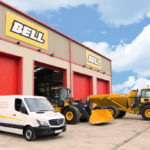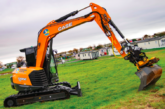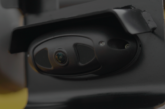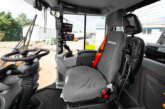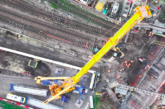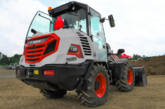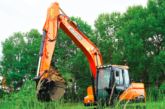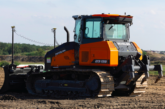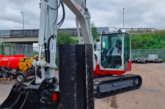Every plant operation has individual preferences on how best to build a fleet and the type of machines that should feature. Depending on a fleet’s size and function, plant managers may prefer to offer clients a portfolio of the latest models, carry well-maintained older machines, or present a hireable taskforce that combines both.
Greg McKay, Parts Manager at Bell Equipment UK, explains how an increasing awareness of the circular economy, where resources remain in use for as long as possible, has the potential to inform UK-based plant operations of how to further the service lives of older machines and realise maximum values:
“In our experience, it’s more than feasible to keep a well-designed, high-quality plant machine, running efficiently and delivering results for many years; as long as it is correctly maintained.
“Whilst it often seems more appropriate for clients to buy new, there is certainly a circumstantial case for enabling machines to live longer. The importance of servicing vehicles at the appropriate working hour increments is critical to achieving longevity and has been proven in delivering truly impressive results in terms of ‘machine lifetimes’.
“Illustrating this point, we have recently reported that Bell Equipment clients in the Middle East have enabled fleets of Bell B40D and B50D models built in the mid-2000s, to not only remain operational, but achieve in the region of 60,000 hours each. This is owed to an unswerving approach to servicing.
“Demonstrating the capabilities of Bell machines, which by their design have been built to last longer, the ADTs have been operating in blisteringly hot, dust-rich environments, and have been instructed, in many cases, with high impact rock-loading tasks. Plant paperwork and log sheets demonstrate that a construction project in Kuwait involved the successful use of 37 B40Ds and eight B50Ds, which have been in operation since 2007 and 2008.
“Bell UK supplied the trucks and has consistently supported the site with parts and technical advice. The trucks have been maintained by the client’s own trained engineers, and due to the high Sulphur content in the fuel, they have been serviced every 250 hours using the correct authorised oils.
“Of course, the weather and land conditions are different to our own. Britain, by contrast, experiences wet, cold weather, however our experience shows that the dust and heat of warmer climates can present other significant challenges to ADT operations.
“Whilst we have not yet been made aware of a UK Bell machine owner whose vehicle boasts as many working hours, we can provide any customer with all the necessary support needed, regardless of climate or machine undertaking, should they wish to choose the machine longevity route.
“Access to the correct parts, delivered at convenient times is of course, essential. However, we also endeavour to make our prices as competitive as possible to encourage the safe and effective maintenance of machines and make the process consistently affordable for customers. We also have service kits for each recommended service guide. These kits contain all the filters, seals and gaskets required to complete a service at each suggested interval, from 500 hours onwards.
“Fundamentally, we want to make it as feasible as possible for customers to continue running Bell machines for many years, if it’s the route they want to take, by creating a committed partnership with the significant advantages that can be achieved through service and maintenance.”

